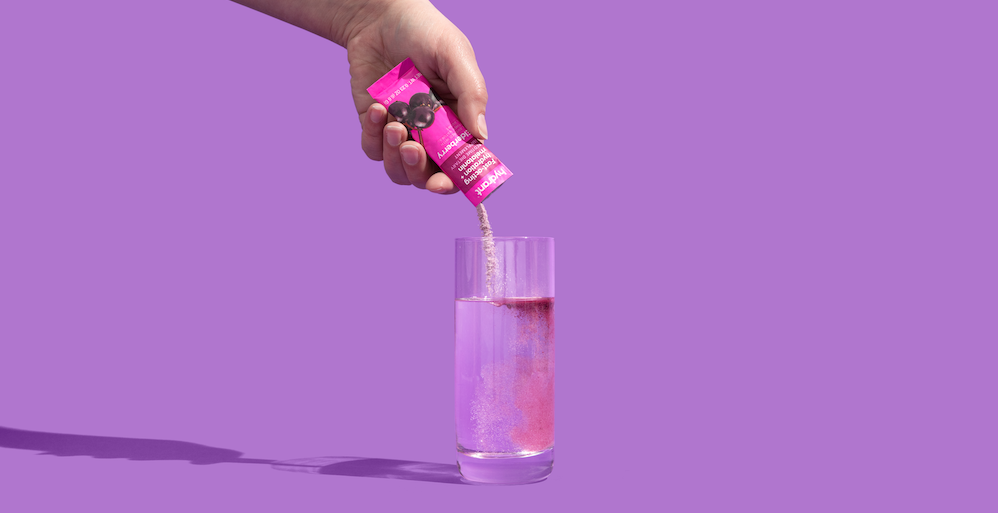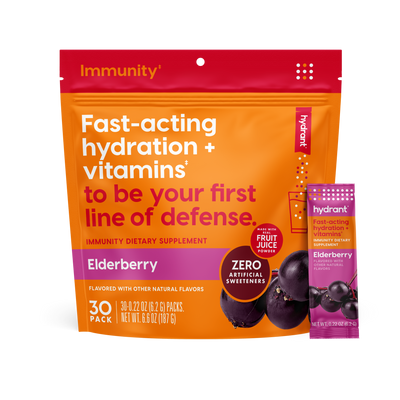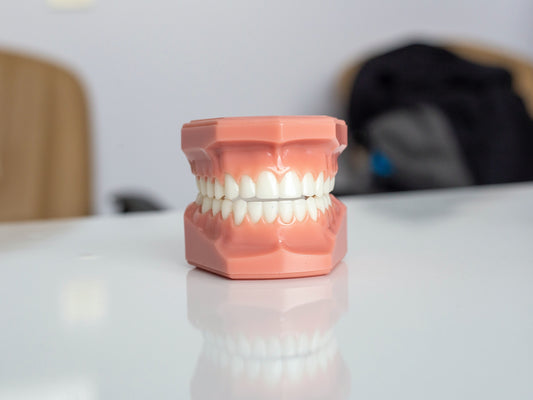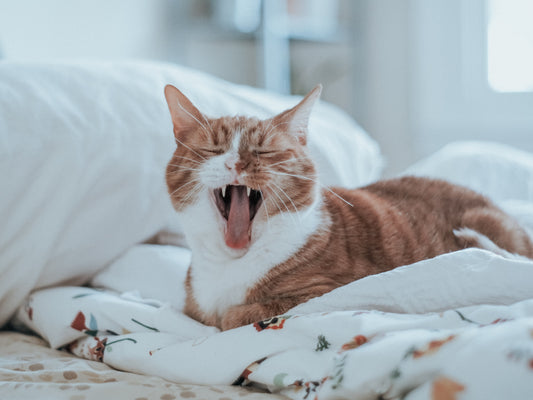The Importance of Sleep
Sleep is one of our body’s most important biological functions to revitalize our physical health, cognition, performance, and mood [1]. Despite the significance of quality sleep, research has shown that up to 70 million Americans suffer from some form of sleep loss [2]. This pervasive is attributed to varying factors, such as environmental stressors, anxiety, and poor sleep hygiene [3]. One of these factors that contribute to restless sleep is our emotional state. A study showed that 60% of its 1,100 student participants were poor-quality sleepers due to emotional stress and tension [4]. On the other hand, when we feel calm and relaxed before bedtime, quality sleep becomes more achievable. Many sleep aids on the market are formulated to perform not only as a sedative but also as an anxiolytic, soothing supplement.
Natural Sleep Aids: A Popular Alternative to Sleep Prescriptions

In recent years, alternative treatments of insomnia, such as herbal medicine, have become increasingly popular because of higher tolerance, less known side effects, and relatively inexpensive costs compared to sleep drugs. A 2006 study found that 15% of more than 2,000 adults in the surveyed community used at least one herbal/dietary sleep aid in the past year, whereas only 11% resorted to sleep prescriptions [51]. As addressing the topic of sleep becomes an ever more critical need, our team created an effective and delicious solution to help those in need of a good night’s rest.
Melatonin Functions As A Sleep Aid for Insomnia and Jet Lag
Melatonin, a natural “sleep hormone”, is released by the brain in sync with our circadian rhythm to prime our bodies for sleep [5]. Much of the research shows that melatonin supplementation, with proper dosage and timing, is an effective sleep aid [6]. A meta-analysis of 19 different studies show that melatonin decreases sleep onset latency, increases total sleep time and improves overall sleep quality [8]. These supplements are most commonly used to tackle insomnia and decrease jet lag between time zones [7]. Melatonin is a safer alternative to other available therapeutics for sleep disorders because it causes significantly less side effects [6]. There is evidence, however, that melatonin supplementation may interfere with some medications, such as blood thinners, anticonvulsants and antidepressants [9-12]. In these cases, one should consult with a medical professional before taking melatonin.
L-Theanine: Mechanism of Action in the Brain
Multiple studies suggest that L-theanine, a major amino acid found in tea leaves, produces an anti-stress effect that helps improve sleep quality in varying participants [13-15]. Once the supplement is ingested, L-theanine is able to cross the blood-brain barrier [16]. Its ability to profoundly impact our mood and cognition can be credited to its structural similarity to glutamate, a key excitatory neurotransmitter in the brain [17]. When we are under acute stress, there is an increase in glutamate levels in the brain [18]. Although its exact mode of action must be fully explored, L-theanine seems to block glutamate from relaying signals and subsequently triggers the release of other neurotransmitters, such as dopamine, serotonin, and GABA [19]. An increase in these mood and emotion-regulating neurotransmitters can induce a state of relaxation.
L-Theanine, Alpha Waves, and a State of “Wakeful Relaxation”
L-theanine is also known to help us enter a state of “wakeful relaxation”. A study shows that resting participants who consumed L-theanine saw an increase in their alpha waves and became mentally relaxed and alert [20]. L-theanine was able to significantly influence the brain’s resting state without causing drowsiness. The alpha wave effects of L-theanine may vary depending on the task being performed or the individual’s mental state. For instance, one study demonstrates that L-theanine actually decreased alpha waves when participants were faced with demanding attentional tasks [21]. Another study observed that L-theanine seemed to more significantly affect participants classified as highly anxious [22]. Even though the data on neurocognitive benefits of L-theanine is promising, further clinical research on its mechanism and its effects in isolation from caffeine should be pursued.
What is GABA?

GABA is an amino acid that operates as an important inhibitory neurotransmitter in the brain [23]. GABA activation slows down activity in brain cells and triggers sleep as multiple populations of GABA neurons regulate REM sleep [25]. GABA supplementation is widely popular due to its anxiolytic properties and function as a natural sedative and hypnotic. These natural supplements are hailed to be safer than some current sleep pharmaceuticals that may cause side effects and addiction [24-25].
GABA and Sleep Quality
A clinical study showed that 4 weeks of GABA supplementation significantly improved sleep quality in subjects suffering from insomnia. These results, however, should be strengthened with larger study groups. Interestingly, a recent animal study revealed that a mixture of GABA and L-theanine was more effective in reducing sleep latency, awake time, and increasing sleep duration than when administered separately [23]. This suggests that there may be a positive synergistic sleep-inducing effect with these two amino acids present in our SLEEP mix.
GABA Supplementation and Mood
Similar to L-theanine, GABA supplements also seem to alleviate anxiety, fear, and stress. One study tested how 0, 25, or 50 mg of GABA would influence performance and fatigue levels in participants solving an arithmetic task. Salivary levels of chromogranin A (CgA) and cortisol-markers of physical fatigue were used as criteria for acute psychological stress. A reduction in these levels and higher accuracy score on the task reflected a significant reduction in physical fatigue in the 50-mg-GABA group [26]. Another similar study found that subjects who ingested GABA-infused chocolate had reduced heart rate variability and steady CgA levels after performing an arithmetic task [27]. This reaffirms the idea that GABA has stress-reducing effects.
Disputes On GABA and Its Ability to Cross the Blood-Brain Barrier
Although GABA’s sleep-inducing and anti-anxiety effects are largely undisputed, the studies behind the supplement’s mechanism of action are controversial. Since the passages into the brain are tightly regulated, substances are not able to freely enter. Some earlier papers conclude that GABA cannot cross the blood-brain barrier, while others argue that GABA can cross in small amounts [28]. These variations may be due to differences in dosage, administration, small sample sizes, and lack of human studies with brain imaging.
Magnesium and Overarching Effects of a Severe Deficiency
Magnesium plays an indispensable role in biochemical reactions throughout our body. Epidemiologic studies show that despite its significance, magnesium intake is decreasing due to our population’s tendencies to eat more processed food and less green leafy vegetables [30]. A severe magnesium deficiency may have serious repercussions in various organ systems for at-risk populations, as listed in the table [29] below:

Magnesium Levels Influence Sleep Quality and Energy Levels
An insufficient amount of magnesium can surprisingly impact our sleep, energy levels, and mood. Magnesium is believed to be a cell-autonomous “timekeeping” component in animal and plant cells. Magnesium levels dictate how much energy our body expends over the course of the day [32]. For sleep and wake cycles, magnesium affects our circadian rhythm by regulating melatonin production [31] and interacting with GABA receptors [30]. One animal study demonstrated that magnesium deficiency in rats increased wakefulness and reduced slow wave sleep. However, this effect was reversed once magnesium was reintroduced into their diet [34]. A study found that magnesium supplementation amongst eldery insomniatic volunteers significantly improved sleep efficiency, duration and quality and notably increased serum melatonin, renin and cortisol levels [30]. Another large scale study conducted in China noted that dietary magnesium intake improved sleep and daytime wakefulness in women only, potentially due to physiological and dietary differences between both sexes [33].
Magnesium Can Affect Mental State
As noted above, magnesium deficiency is oftentimes associated with depression and irritability. Studies show that magnesium supplementation can safely and effectively treat mild-to-moderate depression in adults. One study showed that 248 mg of magnesium over a 6 week period lead to significant improvements in depressive symptoms amongst clinically depressed patients. 61% of the participants reported that they would like to continue using magnesium [35]. Another study highlights that daily supplementation of magnesium may benefit those who struggle with mental and physical stress. Results showed that over time, those who took magnesium daily had decreased heart rate variability and a lower stress index [36].
Introduction to Chamomile
Historically, traditional herbal remedies have been used for centuries to treat a broad range of health issues. Chamomile is one of the most widely used and well-documented medicinal plants in the world. More than one million cups of chamomile tea are consumed daily [37]. Of the many varieties that exist, Roman (Chamaemelum nobile) and German (Matricaria recutita) chamomile are most commonly used to make extracts, oils, and teas [38]. Chamomile is mainly utilized as an anti-inflammatory, sedative, analgesic, and natural sleep aid, but has also been used to treat hay fever, muscle spasms, menstrual disorders, wounds, and gastrointestinal disorders [37].

Chamomile: A Soothing Herbal Sleep Aid
Chamomile is shown to improve sleep quality for different populations all over the world.
One study highlighted that the prevalence of insomnia seems to increase with age. Researchers targeted 60 elderly nursing home patients in Iran and assessed whether chamomile could make a difference in their sleep quality. Results indicate that sleep quality (according to the Pittsburgh Sleep Quality Index) in the chamomile group was significantly higher than the control group after 28 consecutive days [42]. This study is somewhat limited, however, because it was a single-blinded, small size study.
A study in Taiwan recruited 80 postnatal women with poor sleep quality and assessed whether two weeks of chamomile tea could positively impact their sleep and mental state. The results reaffirmed chamomile’s sedative-hypnotic effect. Participants who drank the tea exhibited significantly lower sleep inefficiency and lower levels of depression compared with the control group members [43]. It should be noted that four weeks after the experiment ended, both control and experiment groups had similar sleep quality, fatigue, and depression scores. In other words, chamomile’s sedative effects were not long-lasting, potentially because the experiment was only two weeks long.
Chamomile May Have Anxiolytic and Antidepressant Effects
Chamomile has been documented as a natural herbal medication to treat depression and anxiety in several different regions in Sardinia, Morocco, Brazil, and Southern Italy [44]. Amsterdam et al. (2012) examined whether oral chamomile extract would benefit volunteers with different statuses of both mild to moderate anxiety and depressive symptoms. In 2009, his team had already observed that chamomile had notable anti-anxiety effects on participants suffering from generalized anxiety disorder [45]. The researchers concluded that chamomile significantly reduced both anxiety and depressive symptoms and mood scores for all patients. More importantly, there seemed to be an even greater reduction for those who were currently suffering from both anxiety and depression [44]. These results should be retested with different dosages and greater sample size.
Another quasi-experimental study tested whether an aromatherapy massage with chamomile and lavender oil would alleviate sleep problems and anxiety in 105 patients with burn injuries. Burn patients often suffer from sleep disorders due to the chronic pain and high levels of anxiety. Results from the study implicated that the massages using the blend of oils significantly improved sleep quality and anxiety scores amongst the patients . Nevertheless, the implications from this single-blind study are limited because of the number of variables that may have affected the results. For instance, patient-experimenter dynamics may have skewed the impact of the massage.
Apigenin: A Natural Bioactive Compound in Chamomile
One of the main reasons why chamomile is such a versatile and therapeutic plant is because it contains many different classes of active compounds. These include sesquiterpenes, flavonoids, coumarins, and polyacetylenes [39]. Flavonoids, in particular, are important because of their range of biological properties. They are known to “act as free-radical scavengers and antioxidants, exhibiting anti-mutagenic, anti-inflammatory, and antiviral effects” [40]. In other words, flavonoids can stimulate the immune system and lower oxidative stress in our body.
A standard chamomile extract contains about 1.2% of apigenin, one of the most well-established polyphenol flavonoids that is known to cross the blood-brain barrier [37]. Dietary polyphenols have been observed to “improve resilience after sleep deprivation” [46]. It is hypothesized that apigenin is what may account for chamomile’s function as a sleep aid, sedative, and antidepressant. In several animal models, apigenin has slowed locomotive activity and increased sleep rate and duration [46]. For instance, one rat study found that an injection of 25 mg/kg of apigenin reduced the animals’ locomotive activity [41]. In terms of antidepressant effects, several studies show that some flavonoids, such as apigenin, modifies neurotransmitters and GABA levels in the brain [44].
Hydrant’s Sleep Mix

All five key components of our SLEEP mix were carefully studied, deliberated, and tested. As shown by the research above, each of these ingredients have immense potential as a soothing sleep aid. Some of these ingredients, such as GABA and L-theanine, may even have synergistic capabilities. Other popular plant-based ingredients, such as valerian root, were considered but not included for important reasons.
Valerian Root
The extract of valerian root, or Valeriana officinalis, is another widely used herbal supplement that dates back to the first century AD. Traditionally, valerian root was utilized more as a diuretic, carminative, and menstrual stimulant [47]. It is not until recently that valerian root was considered as a potential sleep aid. Different species of valerian have been reportedly used to treat sleep problems in different cultures around the world, such as Valeriana wallichii in India and Valeriana angustifolia in China 49. A 2002 national study detailed that 2 million adults (1.1%) in the United States used valerian as a self-prescribed treatment for insomnia in the past week [48].
Inconsistent Data on Valerian’s Efficacy as Sleep Aid
Despite its popularity, research on valerian root’s efficacy as a sleep aid remains inconclusive. A series of systematic reviews over the past two decades found numerous methodological flaws in published literature. For instance, an analysis of 16 studies with 1093 patients found that doses ranged from 225 to 1215 mg per day. Only two out of the 16 studies standardized the valerian extract to a specific percentage of valerenic acids [50]. Other inconsistencies such as duration of treatment, patients, and experimental design severely undermined the studies’ findings. The most recent systematic review believes that one of the reasons for these contradicting studies is because we do not properly regulate valerian-containing products. Although we know that valerian’s active constituents, like valerenic acids and valepotriates, are extremely important and have different shelf-lives, these products are not standardized [47]. Even though valerian is believed to be a safe herbal supplement that subjectively improves sleep quality, more objective and quantitative studies using standardized supplements should be conducted.
Cannabidiol (CBD)
The Cannabis plant, most commonly Cannabis sativa and Cannabis indica, has also been widely cultivated since ancient times. Cannabis was commonly used to alleviate pain, nausea, and epilepsy from ailments such as malaria, gout and menstrual symptoms [52]. These plants contain over 80 different active chemicals known as cannabinoids. Two of the most well-known and prevalent cannabinoids are tetrahydrocannabinol (THC), a psychoactive compound, and cannabidiol (CBD), a non-impairing compound. Legalization of medical cannabis and numerous animal studies on CBD have led to interest in its potential as a sleep therapeutic.
Although our understanding is limited, both THC and CBD seem to interact with an endocannabinoid system in our body. Studies are showing that our circadian rhythms may be aligned with this endocannabinoid system. CBD, in particular, has been observed to increase anandamide (AEA), a neurotransmitter associated with sleep-promoting effects [53].
Limitations of CBD Research
A 2020 systematic review on cannabinoid research shows that there is insufficient evidence to show its efficacy as a sleep aid due to “moderate-to-high risk of bias” and limited number of studies 53. Many studies test CBD in combination with either THC or other medications, which makes it hard to determine whether the findings are due to synergistic properties or one or the other. For example, a study recruited 103 patients suffering from a diagnosed anxiety or sleep disorder. These patients were administered CBD ranging from 25 to 175 mg in conjunction with their other psychiatric medications. Sleep scores improved in 48 patients in the first follow up, but declined over time [53]. This may indicate that CBD can impact sleep quality in the short term only. However, because CBD was administered with other medications, this conclusion cannot be confirmed .
Safety of CBD
Studies show that a high dose of CBD (up to 1,500 mg a day) can be used to be effective in increasing the duration of sleep [54]. However, these higher doses may actually inadvertently increase mental sedation. While some studies reassure that CBD is safe to use, others report that CBD can induce some side effects such as inhibition of drug metabolism in the liver, potential alterations of cell viabilities in cell cultures, and decreased fertilization capacity [54]. The FDA website also warns that consumers may also experience gastrointestinal distress or agitated mood changes [55]. Due to these conflicting findings, more studies should be conducted to verify the safety of this cannabinoid.
Legal and Regulatory Confusion with CBD Products
While marijuana refers to cultivated plants used as psychoactive drugs, hemp is used for production of industrial goods. Historically, the 1970 Controlled Substances Act prohibited the production and sale of marijuana and hemp alike 56. However, restrictions on hemp production were loosened with the 2014 Agricultural Act and further relaxed with the 2018 farm bill, in which legislators legally distinguished hemp from marijuana. It states that hemp is “the plant Cannabis sativa L.....with a delta-9 tetrahydrocannabinol concentration of not more than 0.3 percent on a dry weight basis 57.”
Although hemp cultivation and production were federally approved under certain circumstances, varying state laws and requirements create a confusing legal environment for both consumers and businesses. State legislations regarding possession, consumption, production, and marketing range from strict prohibition to full legalization. For instance, while all CBD products are illegal in Idaho, hemp CBD product possession is legal in other states such as Florida and Illinois [59]. These differing state laws therefore make it difficult for companies to participate in interstate and online commerce.
Furthermore, CBD products cannot be legally sold as food products or dietary supplements under FDA regulation at this time [59]. The FDA states that it has not yet fully explored a standardized dosage, interaction with other drugs or food, and safety concerns [55]. Unbeknownst to many customers, current dietary CBD products on the market making therapeutic claims are unregulated and may contain inconsistent ingredients [56]. Consumers should use these products at their own discretion.
With the submission of the H.R.8179 bill (a bill seeking to legalize CBD in dietary supplements) in 2020, Congress and FDA continue to debate on how to regulate these products if legalized. At this point in time, however, different local, state, and federal laws remain a complex issue for businesses hoping to produce legal dietary CBD products.
References

















